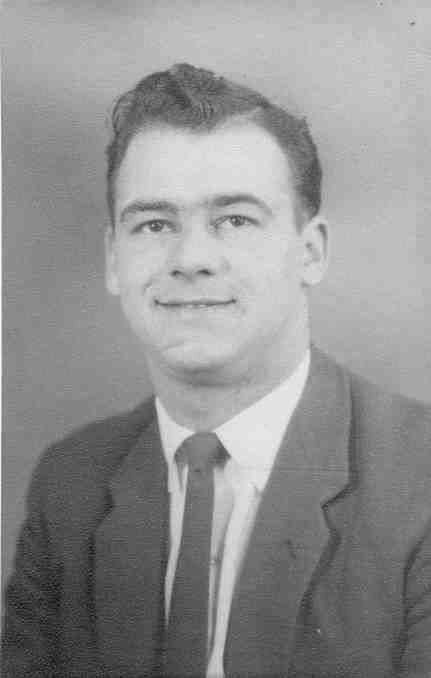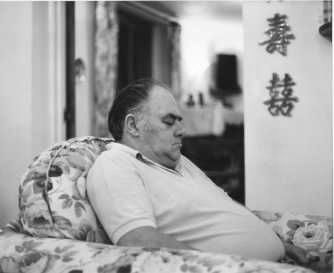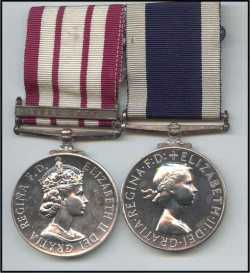Brian Hunneybell
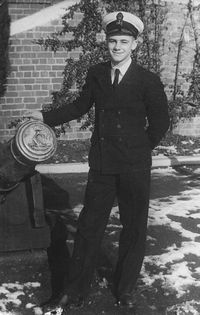
The following words were penned by Brian and included in a publication celebrating the lives of the Royal Naval Artificer Apprentices, H.M.S. Collingwood 1952 - 1955:
After passing out in December 1955 joined HMS Duchess in March 1956 and off to the Mediterranean as leader of Group B Daring. Quite an eventful year. A very good regatta, finishing as Cock of the Fleet. November saw us leading the bombardment on Port Said; probably the last time broadsides from three turrets were fired in anger. December saw us covering the withdrawal from Port Said. Back to UK in March 1957 to a refit. Later that year carried out trials on a pre-wetting system.
August 1957 - joined Collingwood on the Ship Aid Party - the forerunner of FMG. Whilst there, spent a couple of weeks in the backstage party for the Royal Tournament Display Team.
August 1958 joined HMS Armada and off to the Mediterranean again for another year. Late 1959 up to Iceland for the Cod War, then again in early 1960. Back to Portsmouth to put HMS Armada into reserve.
July 1960 into Collingwood for 3rd Class Artificers course.
January 1961 to HMS Royal Arthur for leadership course, then March 1961 to HMS Lochinvar in charge of Radio Workshop.
August 1961 and a crash draft to Aden to put back into reserve three sweepers taken out of reserve in Men for the Kuwait crisis. On arrival found the job didn't exist as sweepers were being towed to Singapore and UK. Spent a couple of months living with the RAF and generally enjoying life!
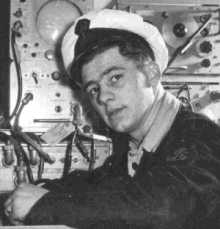
October 1961 back to Lochinvar. It was at this time that I met my wife to be.
March 1962 to Collingwood and then in May 1962 over to the Isle of Wight to stand by HMS Eskimo at Cowes.
Married June 1962.
July 1963 after trials and work up sailed for the Gulf.
October 1963 flew back to Bahrain to join FOSNI staff at Pitreavie.
August 1964 back to Cowes to stand by HMS Arethusa. This became somewhat extended due to I. Samuel White pulling out of shipbuilding.
We came over to Pompey (Portsmouth) Dockyard for completion. Finally we completed trials and had a good work up before sailing for the Far East in August 1966. On arrival we went straight into a major exercise starting in the Philippines and ending in Sydney. From there we went down to Hobart then around Australia, back to Singapore then to Hong Kong for Christmas 1966.
The route home from Singapore was interesting: Le Reunion, Simonstown, Tristan da Cunha, Montevideo, Buenos Aires, San Salvador then across the Atlantic to Oakar, Bathurst in Gambia, then via Gibraltar to Pompey in August 1967.
September 1967 into Collingwood as an instructor on 965 then Radar Systems.
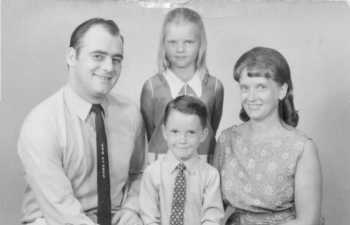 October 1969 and off to Singapore on a married accompanied to RNWS Suara, the Transmitter Station. A thoroughly enjoyable time but unfortunately seeing the demise of RN in Singapore. I happened to be the last RN DUO in HMS Terror and also the last OOD in HMS Terror. I was also selected for Fleet Chief at this time.
October 1969 and off to Singapore on a married accompanied to RNWS Suara, the Transmitter Station. A thoroughly enjoyable time but unfortunately seeing the demise of RN in Singapore. I happened to be the last RN DUO in HMS Terror and also the last OOD in HMS Terror. I was also selected for Fleet Chief at this time.
Arriving home in December 1971, after leave I joined HMS Scylla in March 1972. Back up to the second Cod War. A prolonged refit in Guzz - due to industrial action - and then finally off to the Far East in January 1974.
Flew home from Mombasa in February 1974 to PJTs in Collingwood.
May 1974 to HMS Mauritius to take over the receiver station at Tombeau Bay. February 1975 we were hit by Cyclone Gervaise. Quite enlightening! Finished up closing HMS Mauritius. At least my experience in closing down Singapore came in useful. Had a delightful cruise home from Durban. Much better than the Grey Funnel line.
After leave, into Collingwood for a couple of courses. I got involved with transferring the Collingwood Museum into the Instructional Cinema. The most interesting aspect was finding that we were part of the museum archives - the Series 14 Yearbook was there!
October 1976 to Portland on FOST Staff. Hectic but enjoyable in spite of the long hours. August 1978 to HMS Vernon - first time back in Pompey in nine years! Unfortunately my wife died of cancer in January 1979...
Completed service in May 1980 and joined RNAD as a PTO 4. I retired in September 1992 on medical grounds.
Best ship - HMS Arethusa. Best Draft - RNWS Suara.
